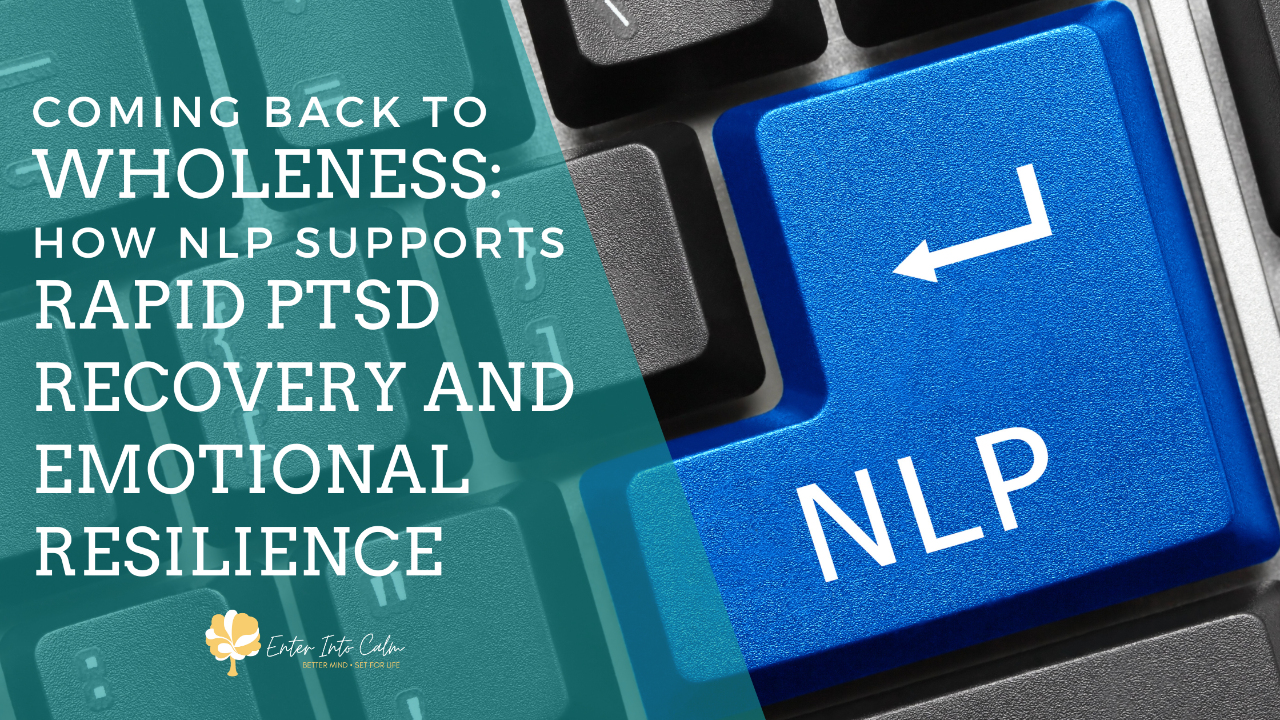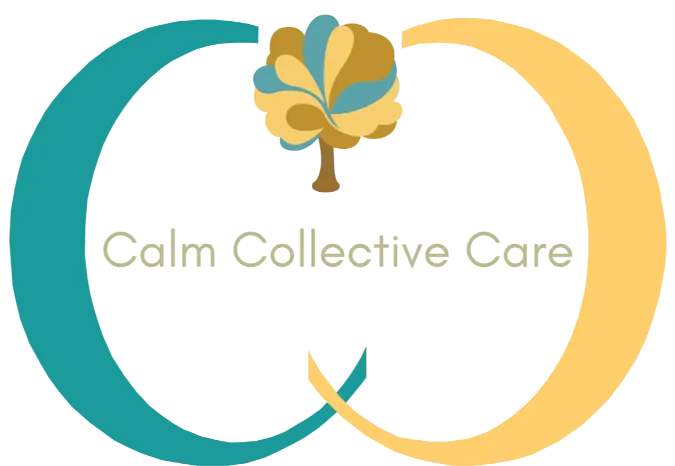Coming Back to Wholeness: How NLP Supports Rapid PTSD Recovery and Emotional Resilience
Jun 17, 2025
In the journey to recover from trauma, individuals often find themselves navigating a maze of emotions, flashbacks, and physiological stress responses. While traditional therapies can be effective for many, they are not always fast-acting, and some clients find the process reactivating or emotionally overwhelming. For those looking for a gentler, more rapid path toward relief, Neuro-Linguistic Programming (NLP) offers a compelling and evidence-informed option—especially when paired with clinical hypnosis.
At our hypnosis group practice, we specialize in helping clients move through life transitions, chronic stress, and trauma-related symptoms using integrative techniques that honor both mind and body. NLP is one of the foundational modalities we use, and for good reason—it works with the way the brain naturally codes experience, allowing for rapid transformation that feels both safe and empowering.
What the Research Says: A Groundbreaking Approach to PTSD
Several clinical studies have explored how NLP compares to standard treatments for Post-Traumatic Stress Disorder (PTSD), especially among military veterans. The results speak volumes.

A 2015–2016 review of three first-line psychotherapies for PTSD (including Prolonged Exposure Therapy and Cognitive Processing Therapy) found dropout rates as high as 39%, often matching or even exceeding the success rates of those programs. For individuals who had already endured trauma, the idea of repeatedly revisiting those painful memories proved too distressing—leaving many without the relief they desperately sought.
By contrast, a pilot study using the NLP-based “Movie Theater Technique” (also known as the “double-dissociation phobia cure”) offered a very different outcome. This gentle visualization process helps clients mentally “watch” their traumatic memory on a screen from a safe distance, guided through a series of dissociations that soften the emotional charge. In this study:
- 97% of participants no longer met clinical criteria for PTSD
- Relief was achieved in just three sessions per participant
- 0% dropout rate, suggesting the intervention was not only effective but emotionally tolerable
This study focused specifically on veterans suffering from flashbacks and nightmares, showing that targeted NLP techniques can directly address the subconscious sensory triggers that conventional talk therapies often struggle to reach.
Rather than requiring the person to relive the trauma, NLP works by changing the internal representation of that experience, allowing the nervous system to finally relax and let go.
A Holistic Model of Healing: Hypnosis + NLP
At our group practice, we don’t believe in one-size-fits-all therapy. Every client comes with a unique nervous system, history, and healing pace. That’s why we combine NLP with trauma-informed hypnosis—a natural, relaxed state that opens the door to lasting inner change.

With this integrated approach, we support clients to:
- Release emotional triggers without retraumatization
- Build inner safety and calm using somatic and subconscious tools
- Replace fear-based patterns with resilience and confidence
- Anchor in positive internal states that grow stronger over time
- Reconnect with self-trust, stability, and future vision
Our sessions are client-centered and empowering—designed to activate the body’s natural capacity for self-healing through safe and structured mind-body processes.
NLP Beyond PTSD: Broader Applications and Validations
The benefits of NLP are not limited to trauma recovery. A growing body of literature supports its effectiveness across areas such as anxiety, phobias, performance enhancement, and emotional regulation.
For example, a 2020 review in Frontiers in Psychology highlighted how NLP’s core interventions (reframing, anchoring, submodalities, and language precision) can contribute to greater emotional adaptability and cognitive flexibility, two key traits linked to resilience in both clinical and non-clinical populations. Researchers emphasized NLP’s relevance in short-term, goal-focused interventions where change needs to happen quickly and effectively.
Another reference from Gray & Liotta (2012) published in the International Journal of Clinical and Experimental Hypnosis supports the use of NLP-based interventions within hypnosis, noting their synergistic potential to resolve phobias and stress disorders by disrupting maladaptive sensory memories.
Finally, as highlighted in “NLP at Work” by Sue Knight (2010), the power of NLP lies not just in symptom reduction but in expanding personal choice, identity resilience, and communication.
In Summary: You Deserve Rapid, Respectful Healing
Whether you're navigating the aftermath of trauma, or supporting a loved one who is, you deserve approaches that are both effective and compassionate. NLP offers a fresh, hopeful path—one that works with the brain’s natural learning systems rather than against them.
When combined with the deep relaxation and subconscious access of hypnosis, the result is a transformational experience that’s not only fast-acting, but deeply felt. No forced reliving. No long emotional reprocessing. Just relief. Clarity. Strength. And peace.
Moving Forward
For individuals who had already endured trauma, the idea of repeatedly revisiting those painful memories proved too distressing—leaving many without the relief they desperately sought.
At Calm Collective Care, we’re committed to making evidence-informed, nervous-system–based approaches accessible in ways that fit real lives. Through secure Zoom sessions, you can engage in clinically grounded hypnotherapy from the comfort of your home—without sacrificing depth, safety, or connection.
Our work is rooted in the same principles explored here: restoring agency, reducing fear, and helping the nervous system learn new patterns of response. Whether you’re navigating chronic pain, stress, anxiety, or a desire for greater clarity and resilience, our collective approach blends hypnotherapy with coaching and mindfulness-based practices to support meaningful, sustainable change.
Ways to Get Started
Guided Group Hypnosis
We offer live, guided group hypnosis sessions designed to support stress reduction, confidence, emotional regulation, and nervous system resilience. These sessions provide a structured, supportive environment for experiential learning—whether you join live or explore our growing audio library.
👉 Learn more Group Session in the Change Your Life Circle
👉 Access the ever-expanding Audio Library
One-on-One Hypnotherapy
For a more personalized approach, working individually with a certified hypnotherapist allows for tailored support aligned with your specific goals, history, and nervous system patterns. You can explore our team of practitioners and schedule a consultation to find the right fit.
Guest Author:
Hannah Henjum
Consulting Hypnotist, NLP & Time-Line Therapy® Practitioner
Specialties: Stress | Confidence
Hannah specializes in helping clients overcome stress and build confidence and joy in their daily lives. She uses hypnosis and NLP techniques to help individuals resolve the underlying mental and emotional blocks that affect their well-being and self-esteem. Her approach is centered on creating a balanced, fulfilling life for her clients, helping them develop strategies for long-term mental clarity and resilience. Hannah empowers clients to bring curiosity, joyfulness, and ease back to their lives.
References:
- Clinical studies on PTSD therapy comparison (2015–2016) – unpublished summary
- Movie Theater Technique Pilot Study – Veteran PTSD Outcomes
- Gray, R.M., & Liotta, R.F. (2012). PTSD and the “rewind technique”: Evaluation of the Neuro-Linguistic Programming treatment for PTSD. International Journal of Clinical and Experimental Hypnosis, 60(4), 429–443.
- Passmore, J., & Rowson, T. (2020). Neuro-Linguistic Programming: A Review of NLP Research and the Application of NLP in Coaching and Personal Development. Frontiers in Psychology, 11, 1216.
- Knight, S. (2010). NLP at Work: The Essence of Excellence. Nicholas Brealey Publishing.
Be Calm ...
and experience hypnosis!
Hypnosis can help in many ways. Curious Minds should Stay Curious.
Boost Self-confidence • Lessen Anxiety • Grief• Cancer • Create Positive Mindset • Eliminate Limiting Beliefs • Improve Sleep • Manage Pain Better • Prepare for Childbirth • Enhance Performance • Heal & Resolve Grief • Change Habits • Weight Loss without Dieting • Smoking Cessation • Stress Reduction • Stop Teeth Grinding • & more
Connecting with me 1:1 is fast and easy!


